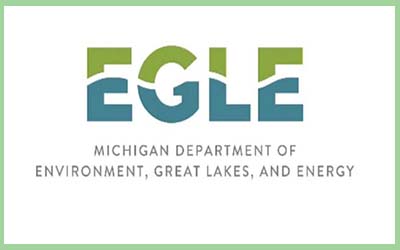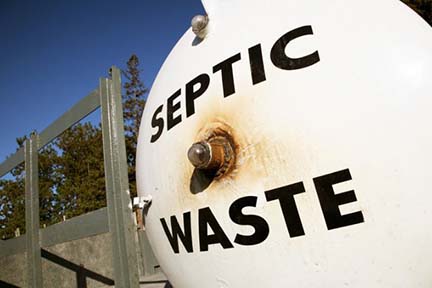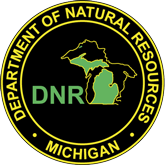FOR IMMEDIATE RELEASE
Jan. 6, 2022
EGLE Media Office, [email protected], 517-284-9278
Jill A. Greenberg, EGLE spokesperson, [email protected], 517-897-4965
Leslie E. Smith, III, Indoor Radon Specialist, [email protected], 800-723-6642
Gov. Whitmer declares January 2022 Radon Action Month in Michigan
Gov. Gretchen Whitmer has declared January 2022 as Radon Action Month in Michigan, and she encourages all Michigan residents to learn more about this environmental hazard and test their homes during the heating season.
You cannot see, smell or taste radon, and there are no short-term side effects that could cause alarm or warn of its presence. However, long-term exposure to radon increases the risk of developing lung cancer, which accounts for more deaths in both men and women than any other form of cancer in the United States, according to the Michigan Department of Environment, Great Lakes, and Energy (EGLE), which aims to increase awareness of health risks associated with elevated indoor radon levels, promote home testing and encourage citizens to take action to reduce exposure once elevated radon levels are found.
Behind smoking, radon is the second leading cause of lung cancer and considered a leading environmental cause of cancer deaths in the United States.
The U.S. Environmental Protection Agency estimates that radon is responsible for about 20,000 lung cancer deaths in the United States each year. The risk of lung cancer from radon exposure is higher for people who smoke than for people who don’t smoke. However, the USEPA estimates that more than 10 percent of radon-related cancer deaths occur among people who have never smoked cigarettes.
Radon testing takes on increased importance due to many Michiganders now working from home. Testing is easy, inexpensive and the only way to determine if a radon problem exists. Residents are encouraged to test for radon every two to five years. If a radon mitigation system was previously installed in the home, residents are encouraged to test every two years to make sure that radon levels remain in the acceptable range.
One in every four Michigan homes is expected to have radon levels exceeding the federal action level of 4.0 picocuries per liter. Elevated radon levels have been found in all 83 Michigan Counties. Radon poses a serious threat to our community’s health, but high radon concentrations also are easily fixed.
For more information about radon testing and other information, including resources for homeowners builders, realtors, teachers and healthcare providers, go to Michigan.gov/Radon, or call EGLE’s Indoor Radon hotline at 800-RADONGAS or 800-723-6642.
To receive updates on other EGLE news, go to Michigan.gov/MIEnvironment. |








